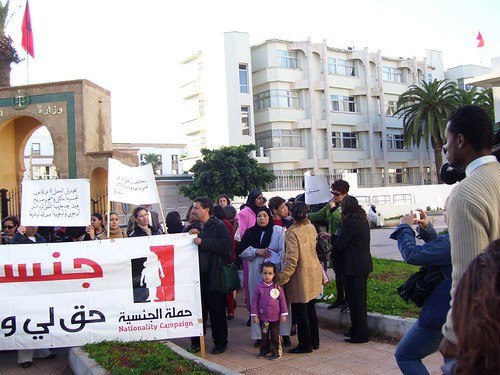I’ve been meaning to write about this wonderful network - the Women’s Learning Partnership (WLP) - before but have been procrastinating.
No time like the present:
In a nutshell, they’re about female empowerment as part of human equality, and positive thinking : they’re a network of networks - they work with 18 autonomous and independent partner organizations in the Global South, particularly in Muslim-majority societies, to “empower women to transform their families, communities, and societies.”
One of their particular campaigns that I wanted to highlight is ‘Claiming Equal Citizenship‘: the Campaign for Arab Women’s Right to Nationality.
Women’s right to equal citizenship is guaranteed by the majority of Arab constitutions, as well as by international law. Yet across the Middle East and North Africa (MENA) region and the Gulf, women are denied their right to nationality – a crucial component of citizenship.
In almost every country in the MENA and Gulf regions, women who marry men of other nationalities cannot confer their original nationality to their husbands or children. Only fathers, not mothers, can confer their nationality to their children.
Discriminatory laws denying women equal nationality rights undermine women’s status as equal citizens in their home countries. Such laws send the message that women do not enjoy a direct relationship with the state, but must access their citizenship rights through mediation of a male family member, such as a father or a husband. Until women in the MENA and Gulf regions are recognized as full nationals and citizens, they cannot participate fully in public life, nor claim the other rights to which they are entitled as equal members of their societies.
The denial of women’s nationality rights also created real suffering for dual nationality families living in the woman’s home country. Children and spouses are treated as foreigners and must obtain costly residence permits. Children are often excluded from social services such as social security, healthcare and subsidized or free access to education. In many countries, spouses and children have limited employment opportunities and are unable to own property. In terms of psychological impact, many women feel isolated and guilty because they feel responsible for the difficulties faced by their families, while children suffer from low self-esteem because of their second-class status.
I have written about this problem as affecting Bangladeshi women in the past - not being able to confer nationality upon their children - as it is passed through the father. Essentially this is how I found out about this campaign, one of the WLP activists commented upon my post and pointed me to their work.
The goals of the campaign are to call for
- Legal reform enabling women to confer their nationality to their husbands and children without condition
- Full implementation of reformed nationality laws and equal access to these laws for all women
- Recognition of women as equal citizens in all areas of life
Please sign the petitions to support equal rights to citizenship for men and women.
Your signature sends a message of support to partners, who can use the international visibility to strengthen their advocacy efforts for amending nationality laws.



